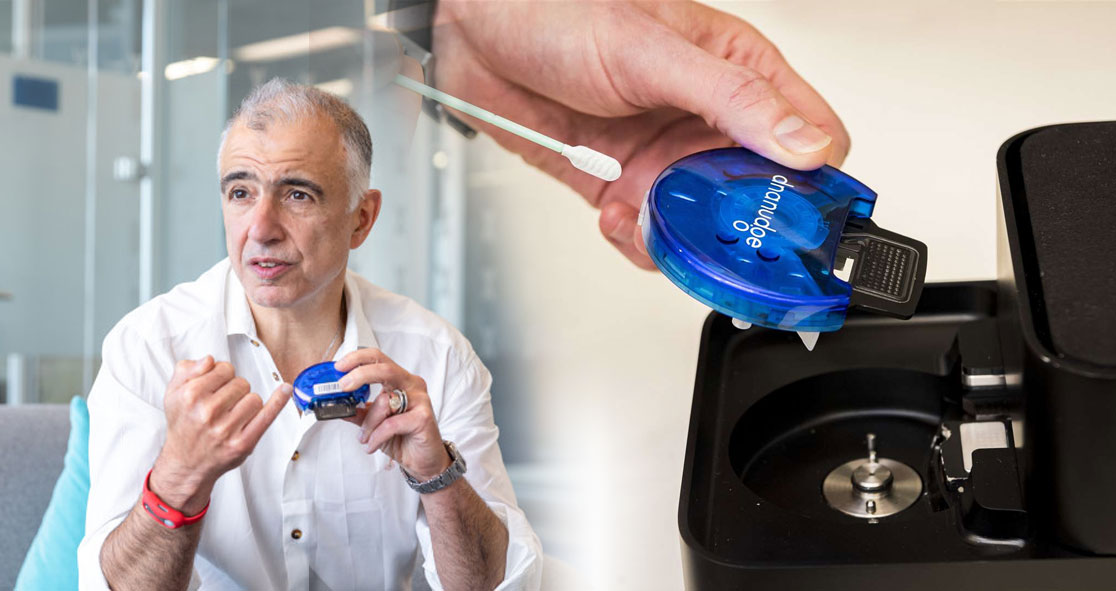A new study has found that a rapid 90-minute COVID-19 test has shown over 94% sensitivity and 100% specificity.
The study, published in the journal The Lancet Microbe, was led by researchers from Imperial College London.
The team conducted the rapid COVID-19 tests, which do not require a lab, on 386 NHS staff and patients.
The Lab-in-Cartridge rapid testing device can be performed at a patient’s bedside. It showed over 94% sensitivity and 100% specificity, meaning it had a higher level of accuracy and produced very few false negatives and interestingly no false positives.
The rapid test, developed by DnaNudge, a start-up based in White City, London, has currently been used successfully across eight hospitals in London. The UK government has placed an order of nearly 6 million testing kits.
A pediatric-sized nose swab collected from a patient is inserted into the testing device, which then looks for traces of genetic material related to SARS-CoV-2 virus, which causes COVID-19 infection.
One can expect the result within 90 minutes compared to conventional testing that offers results in 24 hours.
Lead author of the study Prof. Graham Cooke said, “These results suggest the test, which can be performed at a patient’s bedside without the need to handle any sample material, has comparable accuracy to standard laboratory testing.”
“Many tests involve a trade-off between speed and accuracy, but this test manages to achieve both. Developing an effective bedside test in under three months has been an incredible collaboration between teams of engineers, clinicians and virologists,” he added.
The results of the rapid-testing device, called the COVIDNudge test, were compared with standard hospital laboratory equipment.
Prof. Chris Toumazou, CEO and co-founder of DnaNudge said, “The DnaNudge test was developed as a lab-free, on-the-spot consumer service that can be delivered at scale, so we clearly believe it offers very significant potential in terms of mass population testing during the COVID-19 pandemic.”
“The platform is well suited to testing in primary care and community settings with potential for use in non-healthcare settings such as care homes, schools, transport hubs, offices, and, to help bring the arts back, in theatres and venues. However, further studies of real-world effectiveness in non-clinical settings would be required prior to widespread deployment,” Prof. Toumazou added.
Dr. Bob Klaber of Imperial College Healthcare NHS Trust said, “As an organization, we are focused on using research and innovation to continuously drive improvements to care.”
“It’s been brilliant to work so closely with scientists, clinicians and innovators from DnaNudge, Imperial College London and the Trust, alongside many of our patients and staff, to assess the practicality and validity of this exciting test.” “Getting accurate results back to clinicians and their patients as quickly as possible makes a huge difference to how we safely manage clinical pathways and we are very much looking forward to rolling this out more widely,” Dr. Klaber added.























